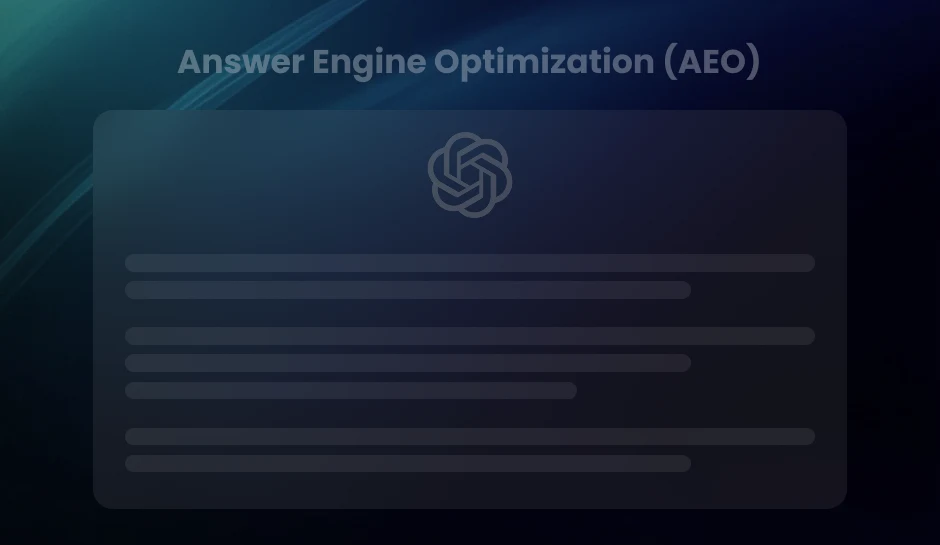
Leverage the Power of Predictions: Mastering the Analytics Model
The Analytics model is a tool that synthesizes your data into useful information that helps you make the right strategies and decisions for your business. Follow this blog to learn everything about analytics models that are worth knowing.
The journey to harnessing the full power of analytics begins with meticulous data collection, where the raw material that feeds our models is gathered. However, the process continues; the data must be of high caliber to produce meaningful and actionable insights. In this insightful exploration, we delve into the critical role of data cleaning and preprocessing—the vital steps that transform raw data into a polished dataset, laying the groundwork for reliable analysis.
Quality input data forms the bedrock upon which predictive analytics stand. As we dissect this topic, we’ll uncover the importance of descriptive statistics in providing preliminary insights into our data. Understanding patterns through measures of central tendency, dispersion, and association informs and ultimately steers our analytics toward deeper, more precise conclusions. Sales data plays a crucial role in this process, as it helps validate assumptions and enhances the accuracy of predictive models. Prepare to embark on a journey that will leave you adept at crafting an analytics model that stands on a foundation of data excellence.
Setting the Stage with Data Preparation
Data is the cornerstone of any analytics model, and preparing it is crucial to the success of subsequent analysis. Laying the groundwork with meticulous data preparation can mean the difference between a model that merely functions and one that excels at providing actionable insights.
Data Cleaning and Preprocessing: Ensuring a Strong Foundation
Before any meaningful modeling can occur, data cleaning and preprocessing must be meticulously carried out. This process is pivotal in rectifying the inevitable imperfections present within raw data. Common tasks during this phase include:
- Handling Missing Values:
- Identifying and Addressing Outliers:
- Reducing Noise:
Strategies to fill in or recognize gaps in the dataset may involve imputation, deletion, or even model-based approaches.
Techniques like trimming, Winsorizing, or leveraging standard deviations help manage anomalies.
Smooth out irregularities using algorithms for noise reduction to sharpen the signals within the data.
Feature Engineering: Crafting the Inputs for Predictive Success
The art and science of feature engineering take center stage following data cleansing. This crucial step involves:
- Selecting Relevant Features:
- Constructing New Features:
- Dimensionality Reduction:
- Data Partitioning:
Identifying which data attributes are most useful for the analytics model.
Enhancing the dataset by deriving new data points through various transformations and combinations of existing features.
Techniques like Principal Component Analysis (PCA) help streamline the input features and focus on those with the most predictive power.
Preparing for Training and Validation
With the features duly prepared, partitioning the data is the next pivotal step:
- Training Set Creation: Allocating the largest portion of data to train the model, forming the basis of learning.
- Validation Set Allocation:
- Setting aside a subset to refine and tune the model’s hyperparameters ensures that the model doesn’t overfit the training data.
- Test Set Separation:
- Reserving a final dataset, untouched during the training or validation phases, provides an unbiased evaluation of the final model’s performance.
- Cross-Validation:
- Employing techniques such as k-fold cross-validation helps to assess how the analytics model will generalize to an independent dataset, which is crucial for ensuring reliability in predictions.
Pro Tip- Prioritize feature selection to include only the most relevant attributes in your dataset. This streamlines modeling reduces complexity, and enhances interpretability and generalization.
Core Analytics Techniques and their Applications
The analytics model sits at the heart of data-driven decision-making processes, cutting across domains from finance to healthcare. Its strength lies in its ability to reveal insights and forecast trends by applying various statistical and machine-learning techniques. Below, we discuss some core analytic techniques and their practical applications in different fields.
Regression Analysis for Continuous Predictions
At its core, regression analysis helps us understand the relationship between variables and how that relationship can be used to make accurate predictions. There are two main types of regression models:
- Linear Regression:
- Non-linear Regression:
Used when the dependent variable is expected to have a linear relationship with one or more independent variables. For instance, it can be used to predict housing prices based on features like size and location.
Applies when the relationship between variables is more complex, with data exhibiting curvature or more intricate patterns. This technique is essential in fields like meteorology for weather forecasting.
Classification Techniques for Discrete Outcomes
Classifying data into discrete outcomes is fundamental in many analytics models, especially when the output is categorical rather than continuous. Various approaches include:
- Decision Trees and Random Forests:
- Neural Networks and Cognitive Computing:
Decision trees split data based on certain conditions, making them excellent for tasks such as credit scoring. Random Forests, a collection of decision trees, enhance accuracy and prevent overfitting, making the model more robust. Prediction is a key outcome of these models, allowing businesses to forecast trends and make informed decisions based on data-driven insights.
These are part of a more advanced set of techniques that mimic the human brain’s functioning to process complex patterns. They are pivotal in areas like image and speech recognition technologies.
Time Series Analysis for Trend and Seasonality
Time series analysis is crucial for any analytics model that deals with data collected over time intervals. It reveals underlying trends and cyclical patterns. Proper handling and forecasting of time series data are extensively used in stock market predictions and economic forecasting, making it a vital tool for financial analysts and economists.
Understanding these core analytic techniques not only enhances the predictive capabilities of a model but also broadens the spectrum of its applications across different industries, empowering organizations to make more informed decisions backed by solid data evidence. End users benefit directly from these insights, as they receive tailored solutions and improved experiences based on data-driven strategies.
Pro Tip- Select the analytic technique best suits your data and problem context. Understanding each method’s strengths and limitations ensures accurate predictions and insights for your application
Advanced Machine Learning for Predictive Analytics
Advanced machine learning is a cornerstone for forecasting and decision-making in predictive analytics. With refined algorithms and computational power, we can dissect complex datasets to glean invaluable insights. The following segments explore the integral frameworks and methodologies that drive these analytic capabilities.
The Landscape of Supervised and Unsupervised Learning
Understanding the dichotomy within machine learning is essential, as it predicates the structure and approach of every analytics model. We have supervised learning on one side of the spectrum, where models are trained using labeled data. Given a set of known inputs, this groundwork equips the algorithms to predict outcomes with a degree of certainty. Conversely, unsupervised learning sails the uncharted waters of unlabeled data to uncover hidden patterns or intrinsic structures without predefined categories or outcomes. Strategic management is crucial in navigating these contrasting methodologies, as it helps organizations determine the most suitable approach for their specific goals and challenges. These contrasting methodologies form the bedrock of the machine learning landscape, each with its challenges and applications.
Deep Learning: Unveiling Complexity within Data
When traditional machine learning algorithms plateau in performance on complex datasets, deep learning makes its grand entrance; by embracing neural networks inspired by the human brain, deep learning models can decipher high-level data abstractions. These multi-layered networks push the boundaries of pattern recognition and feature extraction, making them instrumental players in fields such as image and speech recognition, natural language processing, and beyond.
Optimizing the Learning: Model Training and Validation
The efficacy of an analytics model is partially determined by its capacity to learn and adapt. We refine these predictive tools through model training and validation, striving for a harmonious balance between bias and variance—two statistical errors that can distort a model’s accuracy. By employing strategies such as cross-validation, hyperparameter tuning, and regularization, we can fine-tune our models to generalize to new, unseen data rather than simply memorizing the training dataset. Personalization plays a vital role in this process, as tailored models can better address specific user needs and preferences, enhancing the overall effectiveness of analytics.
- Model Training:
- Bias-Variance Tradeoff:
Feeding data into an algorithm and adjusting the model’s weights and parameters accordingly.
Model Validation is a technique for assessing the performance of an analytics model, often by using a separate dataset not seen by the model during its training phase.
The delicate balance between the model’s simplicity (bias) and flexibility (variance) to predict future data points appropriately.
Pro Tip-Maintain a balance between model complexity (flexibility) and generalization (simplicity) by carefully managing the bias-variance tradeoff. Regularly validate and fine-tune your models to ensure they effectively capture patterns in the data without overfitting or underfitting.
Tools for Analytics Model Refinement and Assessment
Refining an analytics model is critical, ensuring predictions are as accurate as possible. To achieve optimal results, several tools and techniques must be skillfully applied. Community collaboration enhances knowledge sharing, leading to improved methodologies and innovative approaches in model refinement. Let’s delve into some of the most critical tools for enhancing and evaluating the performance of your analytics models.
Model Optimization and Tuning for Peak Performance
Ensuring that an analytics model operates at its peak performance involves careful tuning and optimization. A key aspect of this process is hyperparameter tuning, which can significantly influence the model results. By adjusting hyperparameters and configuration settings to structure the learning process, data scientists can greatly refine the model’s ability to detect patterns and produce accurate predictions. Efficiency in this context is paramount, as optimized models can process data more swiftly and provide insights faster, ultimately enhancing decision-making capabilities.
Cross-Validation as a Tool for Reliability
Another essential tool in a data scientist’s arsenal is cross-validation. This technique ensures the model’s effectiveness and durability when faced with different data sets. A model is trained on multiple subsets of the data through cross-validation and tested on separate subsets. This process helps verify the model’s reliability and guards against overfitting, ensuring that the model generalizes well to new, unseen data.
Performance Metrics: Gauging Success Accurately
The final verdict on a model’s performance comes down to measurement, and the analytics field provides a suite of metrics for this purpose. Accuracy, precision, recall, and the F1 score each play a unique role in model evaluation, collectively giving a comprehensive view of its effectiveness. While accuracy measures the percentage of correctly predicted instances, precision and recall highlight the model’s ability to identify relevant data points and how many relevant data points it can capture. The F1 score provides a harmonized average of precision and recall, offering a single metric to gauge model performance where the balance of the two is crucial.
- Accuracy:
- Precision:
- Recall:
- F1 Score:
Defines the proportion of true results among the total cases examined.>
Measures the ratio of correctly predicted positive observations to the total predicted positives.
Indicates the proportion of actual positives correctly identified as such.
The harmonic mean of precision and recall provides a balance between the two in cases where an equal tradeoff is necessary.
By effectively leveraging these tools, data scientists can refine their analytics models to near perfection, paving the way for more accurate and reliable insights from data. Infrastructure plays a crucial role in this process, as robust systems support the efficient processing and analysis of data, ultimately enhancing the overall performance of analytics models.
Pro Tip- Focus on making your analytics models interpretable alongside optimizing performance. Transparent models build trust and facilitate decision-making. Choose techniques and metrics that balance accuracy with explain ability.
Leveraging Big Data and Real-Time Analytics
Big Data Technologies are revolutionizing the way analytics models are deployed. In today’s data-driven landscape, the challenges of handling immense volumes, diverse varieties, and unprecedented velocities of data are acute. Implementing advanced big data technologies enables businesses to harness the full potential of their data in the context of analytics models. Revenue growth is often a direct outcome of effectively leveraging these technologies, as they provide insights that drive better decision-making and operational efficiency.
Handling Volume, Variety, and Velocity
Three critical dimensions—volume, variety, and velocity—form the cornerstones of big data analytics. Organizations must navigate the expanding seas of data, ranging from structured transaction data to unstructured social media chatter. Furthermore, the unprecedented speed at which data is generated and must be processed has made traditional data processing tools obsolete. Modern analytics models rely upon scalable storage and processing solutions like Hadoop and cloud-based analytics platforms that adapt to the needs of big data and ensure insights are generated on time.
Real-Time Analytics for Immediate Learnings
Real-time analytics stand at the forefront of transforming business intelligence and operational decision-making. Utilizing streaming data, businesses can perform real-time analysis to glean immediate insights. A tracking system is essential in this context, as it enables the continuous monitoring of data streams, ensuring that insights are timely and relevant for informed decision-making. This capacity for instantaneous understanding enables rapid responses to market trends and customer behaviors, thus offering a competitive advantage. Implementing an analytics model incorporating real-time streaming data can significantly accelerate the speed at which insights are obtained and actions are taken, leading to more agile and informed business strategies.
- How streaming data platforms like Apache Kafka and Amazon Kinesis are central to real-time analytics.
- The role of complex event processing (CEP) in identifying significant patterns within real-time data streams.
- Strategies for representing immediate analytics findings to support dynamic, data-driven decision-making.
Pro Tip- When implementing big data and real-time analytics, opt for scalable storage and processing solutions like Hadoop and cloud-based platforms. These technologies adapt to growing data volumes and velocities, ensuring timely insights and facilitating agile decision-making. Software as a service (SaaS) enhances this by offering flexible access to analytical tools, enabling seamless scalability of analytics efforts.
From Insights to Implementation
A pivotal phase in the analytics model life cycle is transitioning from possessing analytical insights to executing impactful business strategies. Organizations can improve operational excellence and strategic foresight by integrating robust model findings into decision-making frameworks.
Transforming Analytical Insights into Business Strategies
Grounded in the power of data-driven decision-making, organizations that harness the predictive capabilities of analytics models can significantly outperform their competition. The application of these insights ranges from optimizing internal processes to crafting targeted marketing campaigns, ensuring resources are allocated efficiently and effectively. Factor analysis is a valuable tool in this context, allowing organizations to identify underlying relationships between variables, refining their strategies, and enhance overall effectiveness.
Product Enhancements through Model Learnings
Product development and refinement stand at the forefront of competitive differentiation. Applying insights from analytic models allows businesses to pinpoint customer needs more accurately, leading to tailored product improvements and innovations that resonate with the market.
The Importance of Management Buy-In and Ongoing Improvement
The success of analytics models is often contingent on the endorsement and support from upper management. Ensuring buy-in paves the way for a culture that appreciates continuous learning and development. Furthermore, the analytics model is not static; it requires regular monitoring and assessment to remain relevant and deliver actionable insights perpetually. Through iterative development, the model matures, aligning more closely with the evolving business landscape and objectives.
Key Takeaways
- Meticulous data collection and rigorous cleaning processes lay the foundation for accurate predictive analytics. Investing in data preparation ensures that the analytics model operates with reliable inputs, leading to more meaningful insights and actionable outcomes. Resource allocation during this phase is critical, as it ensures that sufficient time and effort are dedicated to maintaining high-quality data, which ultimately enhances the model’s performance.
- Crafting relevant features from raw data enhances the predictive power of analytics models. By selecting and constructing meaningful attributes, businesses can extract deeper insights and improve the model’s ability to forecast future trends accurately.
- Rigorous evaluation using cross-validation and performance metrics ensures that analytics models generalize well to new data and maintain accuracy over time. Regular validation and refinement prevent overfitting and help align the model with evolving business needs.
- Leveraging real-time data streams empowers organizations to respond swiftly to market dynamics and customer behaviors. Streaming data platforms into analytics models enables immediate insights, fostering agile decision-making and strategic foresight. Incorporating a strong marketing strategy ensures that these insights are effectively translated into actionable initiatives, maximizing the impact of data-driven decisions on overall business performance.
Conclusion
As we conclude our exploration of the analytics model, it’s important to reflect on the journey from raw data collection to extracting strategic insights that drive business growth. The transition from a mere data set to a robust analytics framework encapsulates the power of systematic analysis, advanced computational techniques, and insightful data interpretation.
The analytics model is not static, it embodies a dynamic, cyclical, continuous-evolving process. Every stage of analytics—from data preparation through technique application and real-time analytics incorporation—serves as a stepping stone toward refinement and optimization. In this self-enhancing loop, each iteration unveils deeper insights, fostering more informed business decisions and facilitating ongoing enhancement of strategic objectives.
- Data initiates the cycle, serving as the foundation for all analytical endeavors.
- Core techniques and machine learning algorithms distill data into predictive insights.
- Refinement tools and assessment metrics ensure models are accurate and effective.
- Implementing analytics concretizes insights into tangible business outcomes.
However, the true power of the analytics model lies not only in its ability to predict and inform but also in its capacity to adapt and learn. As you register the successes and learn from the challenges, your analytics model becomes an even more powerful asset for your organization, fostering a culture of data-driven excellence and continuous improvement.
Stay ahead of the curve for tailored analytics consultancy and solutions. Talk to Us!
Empower your business with analytics models that drive growth and innovation.
Just write to us at info@diggrowth.com and we’ll get back to you.
Ready to get started?
Increase your marketing ROI by 30% with custom dashboards & reports that present a clear picture of marketing effectiveness
Start Free Trial
Experience Premium Marketing Analytics At Budget-Friendly Pricing.

Learn how you can accurately measure return on marketing investment.
Additional Resources
Don’t Let AI Break Your Brand: What Every CMO Should Know
AI isn’t just another marketing tool. It’s changing...
Read full post postFrom Demos to Deployment: Why MCP Is the Foundation of Agentic AI
A quiet revolution is unfolding in AI. And...
Read full post postAnswer Engine Optimization (AEO): The New Frontier of SEO in 2025
As digital experiences continue to evolve, so does...
Read full post postFAQ's
The analytics model is a mathematical representation used to analyze data and make predictions or decisions based on patterns and relationships within the data.
The four types of analytical modeling are descriptive analytics, diagnostic analytics, predictive analytics, and prescriptive analytics.
The four types of analytical modeling are descriptive analytics, diagnostic analytics, predictive analytics, and prescriptive analytics.
To create an analytics model, you must define the problem or objective, gather relevant data, select appropriate analytical techniques, build the model, validate it, and interpret the results.
An analytics model typically has four components: data collection and preprocessing, model selection and building, model evaluation and validation, and deployment and implementation.
 Shahzad Mussawir
Shahzad Mussawir  Rahul Sachdeva
Rahul Sachdeva 

